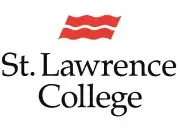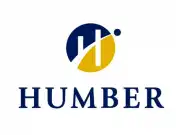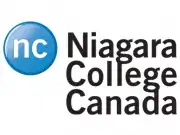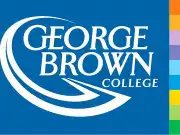Higher education programs in Canada
- Overview of Education in Canada
- Education System in Canada
- How to Choose a University in Canada
- Cost of Education in Canada
- Admission Options and Pathways to Canada for Citizens of Russia and CIS
- Diploma Legalization and Recognition in Canada
- Legalization of a Canadian Diploma in CIS Countries, Including Russia
- Foundation — Preparatory Programs in Canada
- Vocational Education in Canada
- Undergraduate Studies in Canada
- Master's Degree in Canada
- PhD in Canada
- Scholarships and Grants from Canadian Universities and Colleges
- Student Visa to Canada
- Working While Studying in Canada
- Employment Prospects in Canada After Graduation
- Staying and Immigration Opportunities in Canada

Diploma - Advertising and Marketing Communications
St. Lawrence College, CanadaAdvertising is one of the most fascinating, creative, and unusual occupations. We teach students how to comprehend the consumer mind and create marketing communications messages that reach and influence target consumers. Do you consider yourself a "people person"? Do you enjoy digital media and everything…

Certificate - Autism & Behavioural Science
St. Lawrence College, CanadaAutism Spectrum Disorder (ASD) can impair a person's ability to communicate, socialize, and perform well at home, school, and in their society. Language, social and play skills, self-help abilities, academics, motor skills, life skills, and proper behavior can all be developed with Applied Behaviour…

Advanced Diploma - Business Administration (Accounting)
Humber College Institute of Technology & Advanced Learning, Toronto, CanadaAccounting theory, methods, and best practices are among the topics covered in Humber's Business Administration - Accounting advanced diploma program. Bookkeeping, auditing, taxation, business law, information systems, finance, and management are all covered in depth. You'll get hands-on expertise…

Certificate - Art and Design Foundation
Niagara College InternationalAre you interested in developing your practical, hands-on skills while building solid design foundations that are centered on expressing creativity?
Create a good portfolio for studies in other design or art-related programs or earn credits for continued study in Niagara College's Graphic…

Bachelor of Technology (Hons) - Construction Management
George Brown College of Applied Arts and TechnologyThe Honours Bachelor of Technology (Construction Management) program integrates theory, research, fieldwork, and practical teaching. The curriculum blends construction engineering and technology with business and management concepts as applied to construction.
Students learn to handle building…

Diploma - Community Worker
George Brown College of Applied Arts and TechnologyThe Ontario College Diploma in Community Worker is a two-year, four-semester program that integrates local and global perspectives within a multi-level understanding of the historical, social, political, economic, and systemic ways in which social issues have developed and are experienced by communities.…

Certificate - Baking and Pastry Arts
Niagara College InternationalDo you have a talent for baking and pastry arts and want to make a career out of it?
You are a patient and detail-oriented visionary who creates breads, cakes, cookies, and pastries and is ready to meet the demand for qualified bakers in Canada's thriving hospitality industry as a Baking…

Certificate - Carpentry and Renovation Techniques
Niagara College InternationalAre you interested in learning the skills required to build or improve structures?
You have the practical skills required to play a key role in the rapidly growing construction industry as a Carpentry and Renovation Techniques graduate.
Highlights
- Learn…

Certificate - Community Pharmacy Assistant
Niagara College InternationalDo you have a strong attention to detail and a desire to provide excellent patient care and customer service?
You are an essential member of the healthcare team that provides community pharmaceutical services as a Community Pharmacy Assistant, working alongside a registered pharmacist and/or…

Certificate - Culinary Skills
Niagara College InternationalDo you want to improve your gastronomic creativity in order to pursue a rewarding career in the culinary industry?
You have the culinary confidence and competence required to create world-class entrées as a Culinary Skills graduate.
Highlights
- The…
Overview of Education in Canada
The higher education system in Canada is considered one of the best in the world due to the high quality and variety of educational institutions, as well as a large number of educational programs that attract international students from all over the world.
More than 600,000 international students study in Canada. This northern country is one of the most popular destinations for higher education abroad. Moreover, the ease of immigration for students adds to Canada's attractiveness for obtaining higher education.
No matter which university you choose, obtaining higher education in Canada is an investment that will pay off for many years to come.
- Capital: Ottawa.
- Population: approximately 38 million (as of 2024).
- Currency: Canadian dollar (CAD).
- Official language of education: English and French.
Education System in Canada
Canada is one of the most educated countries in the world. According to the Organization for Economic Cooperation and Development (OECD), Canada ranks among the top three countries with the highest per capita spending on public higher education. It allocates 6% of its GDP to education, which significantly exceeds the average indicators of OECD countries.
According to a survey by the Canadian Bureau for International Education (CBIE), 96% of international students recommend Canada for further education. This is an extremely high figure that is difficult for other countries to match.
The education systems in Canada and India have their own characteristics.
Here is a comparative table of the main differences between education in Canada and India:
| Aspect | Canada | India |
|---|---|---|
| Education system | Preschool: kindergarten (ages 4-5). Elementary school: grades 1-6. Middle school: grades 7-9. High school: grades 10-12 (grades 10-11 in Quebec). Vocational education: from a few months to 3 years. Higher education. |
Preschool: nursery and kindergarten (ages 3-6). Primary school: grades 1-5. Middle school: grades 6-8. Secondary school: grades 9-12. Vocational education: 1-3 years. Higher education. |
| Curricula | Each province and territory sets its own education standards. Focus on English or French language, literature, and sciences. More freedom in choosing subjects in high school. | Centralized regulation. Focus on mathematics and sciences. Less freedom in choosing subjects until senior classes. |
| Assessment | Provincial exams in grade 12 (e.g., diploma exams in Ontario). | Board exams in grade 10 and 12 set by the central or state education boards. |
| Higher education | Higher education is offered by universities, colleges, and technical institutes. Degrees: Bachelor's (3-4 years). Master's (1-2 years). PhD (3-5 years). |
Higher education is offered by universities, deemed universities, and institutes of national importance. Degrees: Bachelor's (3-4 years). Master's (2 years). Integrated courses (5 years). Doctorate (3-5 years). |
| Cultural and social characteristics | Focus on cultural development, critical thinking, and student independence. Liberal education. | Structured and formalized education, focus on discipline and academic achievements. |
How to Choose a University in Canada
Canada is home to many of the best universities in the world. The country has around 100 public universities and 14 private ones.
In 2024, 31 Canadian universities were recognized as some of the best in the world according to the Times Higher Education World University Rankings 2024.
The table below lists the top 10 Canadian universities according to the QS World University Rankings 2024:
| Canada Rank | Global Rank | University | Province |
|---|---|---|---|
| 1 | 21 | University of Toronto | Ontario |
| 2 | 30 | McGill University | Quebec |
| 3 | =34 | University of British Columbia | British Columbia |
| 4 | 111 | University of Alberta | Alberta |
| 5 | 112 | University of Waterloo | Ontario |
| 6 | 114 | Western University | Ontario |
| 7 | =141 | Université de Montréal | Quebec |
| 8 | 182 | University of Calgary | Alberta |
| 9 | =189 | McMaster University | Ontario |
| 10 | =203 | University of Ottawa | Ontario |
Why do international students prefer to pursue higher education in Canada?
- More affordable tuition fees compared to other countries.
- Ability to work while studying for up to 20 hours a week.
- Option for international graduates to work for up to three years after completing their studies under the Post Graduate Work Permit (PGWP) program.
- High-quality education and diverse programs.
- High standard of living and safety.
- Multicultural and inclusive environment.
- Various immigration pathways for obtaining permanent residency.
- Practical learning with internships and research projects.
- Bilingual country, providing an opportunity to learn both English and French.
- Different types of financial aid and scholarships for international students.
Cost of Education in Canada
Compared to the United States and the United Kingdom, Canada offers lower tuition fees for international students.
The table below shows the approximate cost of higher education in Canada:
| Degree | Cost, CAD/year |
|---|---|
| Bachelor's |
University: from 17,000 to 90,000. College: from 7,000 to 22,000. Polytechnic: from 6,000 to 20,000. Private institutions: variable price depending on the course or program. |
| Master's |
University: from 25,000 to 150,000. College: from 6,000 to 20,000. Polytechnic: from 7,000 to 25,000. Private institutions: variable price. |
| PhD |
University: from 10,000 to 40,000. College: from 7,000 to 25,000. Polytechnic: from 7,000 to 15,142. Private institutions: variable price. |
These are approximate prices for studying in Canada. Prices may vary depending on the specific program, institution, and other factors.
Admission Options and Pathways to Canada for Indian Citizens
Documents for admission to Canadian educational institutions may vary depending on the specific institution and program you are applying for. However, the following set of documents is typically required:
- Completed and signed (if required) application form for admission to the institution.
- Official copies of educational documents, such as high school certificates or university degrees, with translations into English or French (if they are in another language).
- Results of standardized tests, such as IELTS or TOEFL, to demonstrate proficiency in English, or TEF for French.
- Results of other standardized exams, such as SAT/ACT or GMAT/GRE, if needed.
- Letters of recommendation from teachers or employers.
- A statement of purpose or motivation letter.
- Resume (CV) or portfolio (for certain programs like arts or design).
Diploma Recognition in Canada
For admission to a master's or PhD program, as well as for employment in Canada, students from India may need to go through the diploma recognition process. This requirement depends on the specific university.
Process of Diploma Recognition in Canada
- Diploma evaluation. This process is conducted through recognized organizations such as World Education Services (WES) or International Credential Assessment Service of Canada (ICAS).
- Meeting university requirements. To clarify specific recognition requirements and necessary documents, contact the chosen university.
- Document preparation:
- Translations of academic documents into English or French, certified by a notary.
- Certified copies of diplomas and transcripts.
- Additional documents such as recommendation letters or proof of work experience.
Following these steps will help you successfully complete the diploma recognition process for continuing education or seeking employment in Canada.
Recognition of a Canadian Diploma in India
For employment in India with a Canadian diploma, it is necessary to go through the process of recognition and equivalence. Here are the main steps:
- Submit an application for diploma recognition to the Ministry of Education or an accreditation center.
- Provide certified copies of the diploma and translations into the national language.
- Complete the equivalence process, which verifies that your diploma meets local educational standards.
- Gather additional documents such as program completion certificates, references from instructors, and proof of work experience (if needed).
The process of recognizing a Canadian diploma may vary depending on the country, so it is important to familiarize yourself with the specific requirements and procedures in India. For detailed information, consult local educational institutions or the Ministry of Education.
Foundation Programs in Canada
Foundation Programs in Canada are designed for international students who wish to enroll in Canadian universities but need additional academic or language preparation. These programs typically last from 8 months to 1 year.
Foundation-year programs in Canada help students improve their chances of successfully entering university and starting their academic careers in one of the best education systems in the world.
Foundation Programs in Canada include:
- Academic preparation, which includes courses in core subjects such as mathematics, natural sciences, humanities, and social sciences, as well as preparation for specific university programs and majors.
- Language training in English or French, depending on the province. This includes developing skills in academic writing, reading, speaking, and listening.
- Cultural adaptation, familiarizing students with the Canadian education system, and helping them integrate into the student community.
- Consultation on program and university selection, assistance with the application process, and preparation of necessary documents.
The cost of Foundation programs in Canada ranges from 3,426 to 30,831 CAD per year. It is recommended to check the exact cost directly with the chosen university.
Vocational Education in Canada
Vocational education in Canada equips students with practical skills and knowledge necessary for a successful career in various fields. Canadian colleges and vocational schools produce skilled professionals who are in demand in the job market.
Canada has over 127 colleges, institutes, and polytechnic schools offering more than 10,000 programs across different disciplines, including business, technology, healthcare, arts, social sciences, and more.
Vocational education in Canada focuses on applied learning, incorporating project work, co-op programs, and practical training. Colleges collaborate closely with businesses and industries, providing internship opportunities that enable students to gain real-world experience during their studies.
Advantages of Vocational Education in Canada:
- Quick entry into the job market. Programs are typically 1-2 years long, allowing students to start working sooner.
- Flexible learning, enabling students to balance studies with work.
- Affordable tuition. College education is often more affordable than university programs, making it accessible to more students.
Bachelor's Degree in Canada
Bachelor's programs in Canada provide students with comprehensive knowledge in their chosen field and include both theoretical courses and practical training. Earning this degree typically takes 3-4 years, depending on the province and institution.
International students can pursue bachelor's degrees in Canada in English or French, depending on the province. The curriculum combines theoretical content with internships and project work, preparing students to apply their knowledge practically and be job-ready upon graduation.
Canadian universities offer extensive support for undergraduates, from academic advising to career assistance.
Documents Required for Admission to a Bachelor's Program in Canada:
- Certified copy of the high school diploma with a translation into English or French (depending on the language of instruction at the university).
- Official transcripts of grades from the last years of study.
- Language proficiency test results:
- For English programs: IELTS (minimum score around 6.5) or TOEFL (minimum score around 80-90).
- For French programs: DELF or TCF test results.
- Results of standardized exams like SAT/ACT if required by the university.
- Statement of Purpose — an essay describing the student's academic and career goals.
- Letters of recommendation from teachers or employers.
- Resume (CV) detailing educational and professional experience.
- Some universities may require additional documents, such as a portfolio (for creative programs) or entrance exam results.
Different institutions may have varying document requirements, so it's best to check the exact list directly with the university.
Master's Degree in Canada
A master's degree in Canada offers the opportunity to deepen knowledge and gain specialized skills in a chosen field. Master's programs typically last from 1 to 2 years and include coursework as well as research projects or theses.
Master's students often participate in cutting-edge research and projects, gaining professional experience for future employment or continued academic pursuits. Earning a master's degree in Canada enhances career prospects and can increase salary expectations.
Documents Required for Admission to a Master's Program in Canadian Universities:
- Certified copy of the bachelor's degree with a translation into English or French (depending on the language of instruction).
- Official transcripts of all years of undergraduate study, translated into English or French.
- Language proficiency test results:
- For English: IELTS (minimum score of 6.5-7.0) or TOEFL (minimum score of 90-100).
- For French: DELF or TCF test results.
- Statement of Purpose — an essay detailing academic and career goals, or a motivation letter.
- Letters of recommendation from professors or employers (typically 2-3 letters).
- Resume (CV) including educational and professional experience.
- Additional documents as required by the university, such as a portfolio (for creative fields) or GRE/GMAT scores (for certain programs).
Exact requirements may vary by university, so it is recommended to check with the chosen institution for detailed admission procedures and document requirements.
PhD in Canada
A PhD program in Canada provides an opportunity for students to deepen their knowledge and make significant contributions to their field of study. PhD programs typically last from 3 to 5 years and involve intensive research under the supervision of experienced academic advisors. Students go through coursework, comprehensive exams, and write a dissertation, which they defend before a panel of experts.
PhD students in Canada have access to various resources, including research grants, laboratories, libraries, and the opportunity to publish their work in academic journals.
Graduates of PhD programs have excellent career prospects in academia and research. A Canadian PhD is highly valued worldwide, opening up numerous opportunities for international careers.
Documents Required for Admission to a PhD Program in Canadian Universities:
- Certified copy of the master's degree with a translation into English or French (depending on the language of instruction at the university).
- Official transcripts of all years of master's and undergraduate study, translated into English or French.
- Language proficiency test results:
- For English programs: IELTS (minimum score around 7.0) or TOEFL (minimum score around 100).
- For French programs: DELF or TCF test results.
- Research Proposal — a detailed description of the proposed research topic, its objectives, and methodology.
- Letters of recommendation from professors or academic advisors (typically 3 letters).
- Resume (CV) including educational and professional experience, as well as publications and academic achievements.
- Some universities may require additional documents, such as GRE scores (for certain programs) or a portfolio (for creative fields).
Exact requirements may vary depending on the university and specialization. It is recommended to contact the chosen university for more information on the admission process and required documents.
Scholarships and Grants for Canadian Universities and Colleges
The Government of Canada and many Canadian universities offer financial assistance to international students, including scholarships and grants. It is important to carefully research all available options before deciding which one suits you best.
- Many Canadian universities provide scholarships for international students based on academic performance or other criteria.
- The Canadian government and provincial authorities also offer scholarships for international students, such as the Vanier Canada Graduate Scholarships, which support doctoral students.
- There are also private funds and organizations that provide scholarships to students. For example, the Trudeau Foundation offers scholarships for international students engaged in research activities.
Many universities and research funds provide grants to master's and PhD students. These funds cover research expenses and may include living stipends. Students participating in specific projects or programs may receive grants that cover a significant portion of their costs.
Exploring all available financial aid options and proper planning will help you find the best solution for funding your education in Canada.
Student Visa for Canada
It is important to note that a temporary resident student visa is required for entry into Canada. However, this visa alone is not enough; you must also obtain a study permit, which is issued upon arrival at the airport. This visa and study permit grant students temporary resident status in Canada.
The study permit should be applied for after receiving an acceptance letter from an educational institution but before applying for a visa. All documents (except passports) must be translated into English or French by a professional translator.
To obtain a student visa for Canada in 2024, Indian citizens need to follow several steps, meet specific requirements, and prepare the following documents:
- An acceptance letter from a Designated Learning Institution (DLI) in Canada, including your DLI number, which is necessary for the application.
- Proof of financial support for tuition, living expenses, and return travel. The amount depends on the province where the study will take place.
- Valid passport and its copy.
- Birth certificate and its copy for minor applicants.
- Copies of expired passports.
- Copy of national identity card.
- Documents proving ties to India (e.g., property, family, employment).
- Previous education documents.
- Statement of Purpose explaining why you chose Canada for your studies.
- Provincial Attestation Letter (PAL), if applicable.
- Application form for applicants outside Canada.
- Family information form.
- Additional information form.
- Medical examination results.
- Police clearance certificate.
- Recent passport-sized photos for you and any accompanying family members.
Application Process:
- Document preparation.
- Submitting the application online or on paper through the Immigration, Refugees, and Citizenship Canada (IRCC) website.
- Paying the non-refundable application fee of 150 CAD.
- Submitting biometric data, with a fee of 85 CAD per applicant.
For Indian citizens, the standard processing time for student visas ranges from 4 to 12 weeks, but it may increase during peak periods.